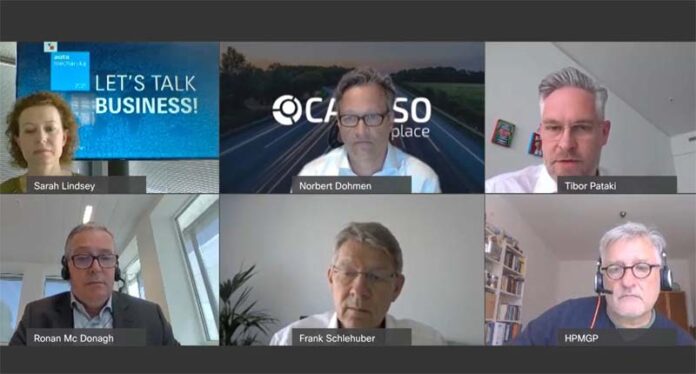
A web talk on the topic of ‘Connectivity, data-based business models and the legal framework’ held by the organisers of Automechanika was the third instalment in the ‘Let’s talk business’ series.
Representatives from various sectors of the automotive industry got together to discuss the latest developments in this area.
Forecasters expect one of every two cars in Europe to be connected by as early as 2025. As the number of connected cars increases, so too does the volume of data collected. These can include location data, information on the condition of the vehicle, and safety-related traffic data. But who can access these data, and who owns them? Will these data change existing business models? And: is there a need for European market regulations to ensure that everyone enjoys equal access to the data and to promote new data-based business models?
These are some of the questions concerning connectivity that the panel’s guests discussed in the first week of June.
Every industry segment represented in the discussion was in agreement that connectivity would bring far-reaching changes for future business models throughout the automotive industry.
Mr. Norbert Dohmen, Managing Director of Caruso Dataplace, put it like this: “I think that connectivity has a high disruptive potential and can change the entire value chain in different industries. This opens up entirely new opportunities for us. As a result, I think that future business will be far more dependent on data access than ever before.”
From the parts distributor’s point of view, knowing in advance exactly which vehicle part needs to be replaced also has its advantages. “After all,” said Mr. Ronan McDonagh, Technical Director of Figiefa, “the logistics of the spare parts business are quite challenging. With new technologies such as data-based ‘predictive maintenance’, it is even possible to anticipate spare parts requirements and ensure that the right part arrives at the workshop at the right time.”









